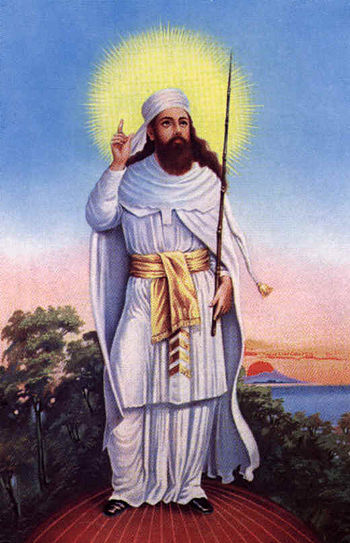Zoroaster
Zoroaster, known as Zarathushtra and Zarthosht in India and Persia, was an Avestan prophet of the Zoroastrian faith. The Gathas, composed by him, are the liturgical core of Zoroastrianism.
Birth
Zoroaster has been speculated to have been born in the area that is now the Bactria-Margiania Archaeological Complex (BMAC), which comprises of mordern Turkmenistan, Northern Afghanistan, Southern Uzbekistan and Western Tajikistan. He was also speculated to have been born either in South-West Afghanistan or North-East Iran. The Talysh people believe that Talysh was the first area of Zoroaster's appearance, and that they were the first followers of the prophet of God. Conservative Zoroastrians assign a date of 6000 BCE to the founding of the religion; other followers estimate 600 BCE. Historians and religious scholars generally date his life sometime between 1500 and 1000 BCE on the basis of his style of writing. The date of birth of Zoroaster is very controversial. It is known that after Alexander's conquest of the Achaemenid Empire, the Greeks imposed an "age of Alexander" calendar, which Zoroastrian priests replaced with an "age of Zoroaster" calendar. It was estimated that he was born 258 years before Alexander, hence the date of 600 BCE was accepted.[1]
Personal details
Zarathushtra's wife's name was Hvovi. He had three sons and three daughters. The names of his sons were Isat Vastar, Urvatat-Nara, and Hvare Chithra. The names of his daughters were Freni, Thriti, and Pouruchista. His father's name was Pourushaspa, his mother's name was Dughdova, and his grandfather's name was Haechadaspa. Zoroaster belonged to the Spitama clan.[2]
Notes
- ↑ Shahbazi, A. Shapur (1977), "The 'Traditional Date of Zoroaster' Explained", Bulletin of the School of Oriental and African Studies 40 (1): 25-35
- ↑ Zarathushtra.com - About Zoroaster
